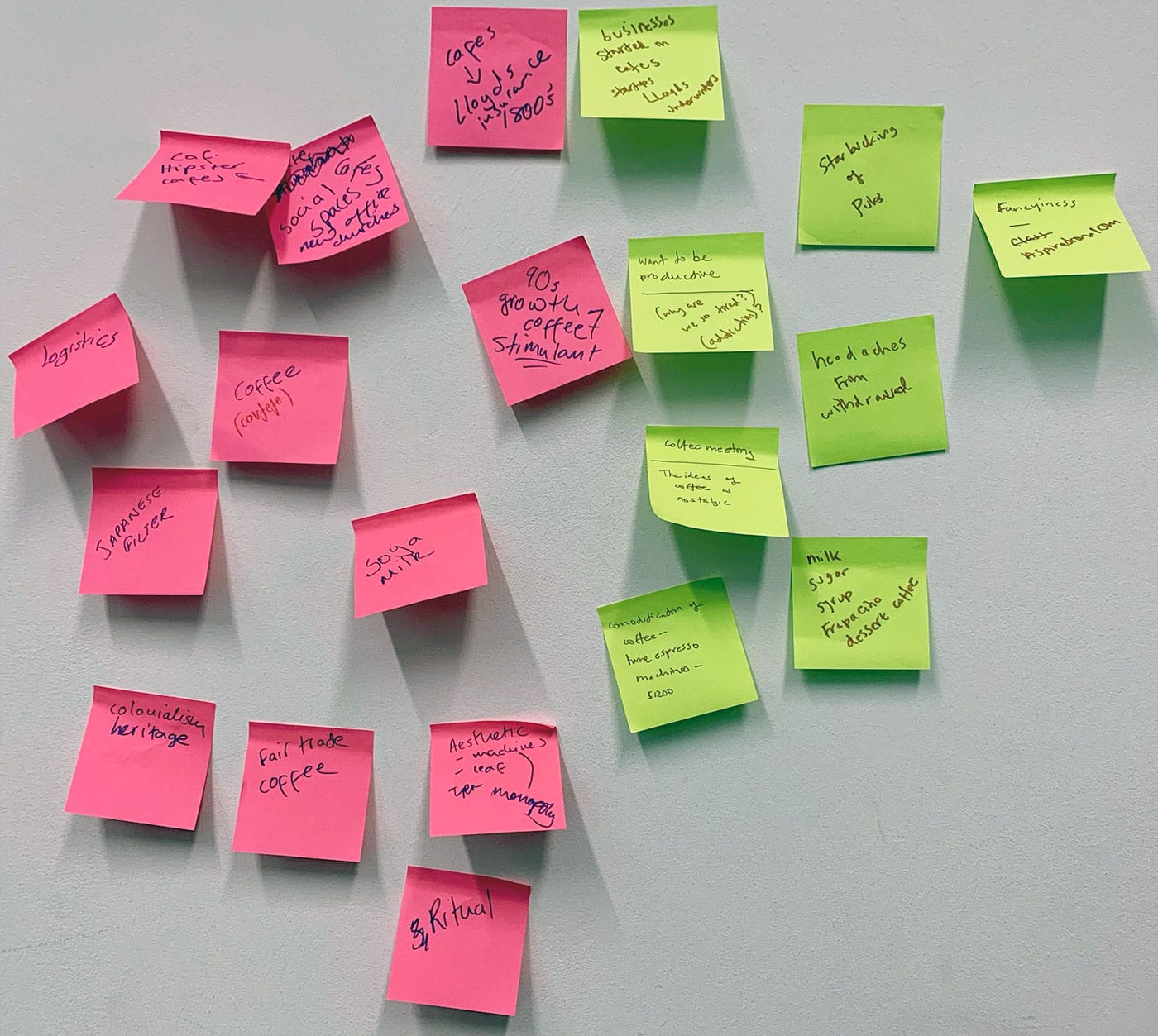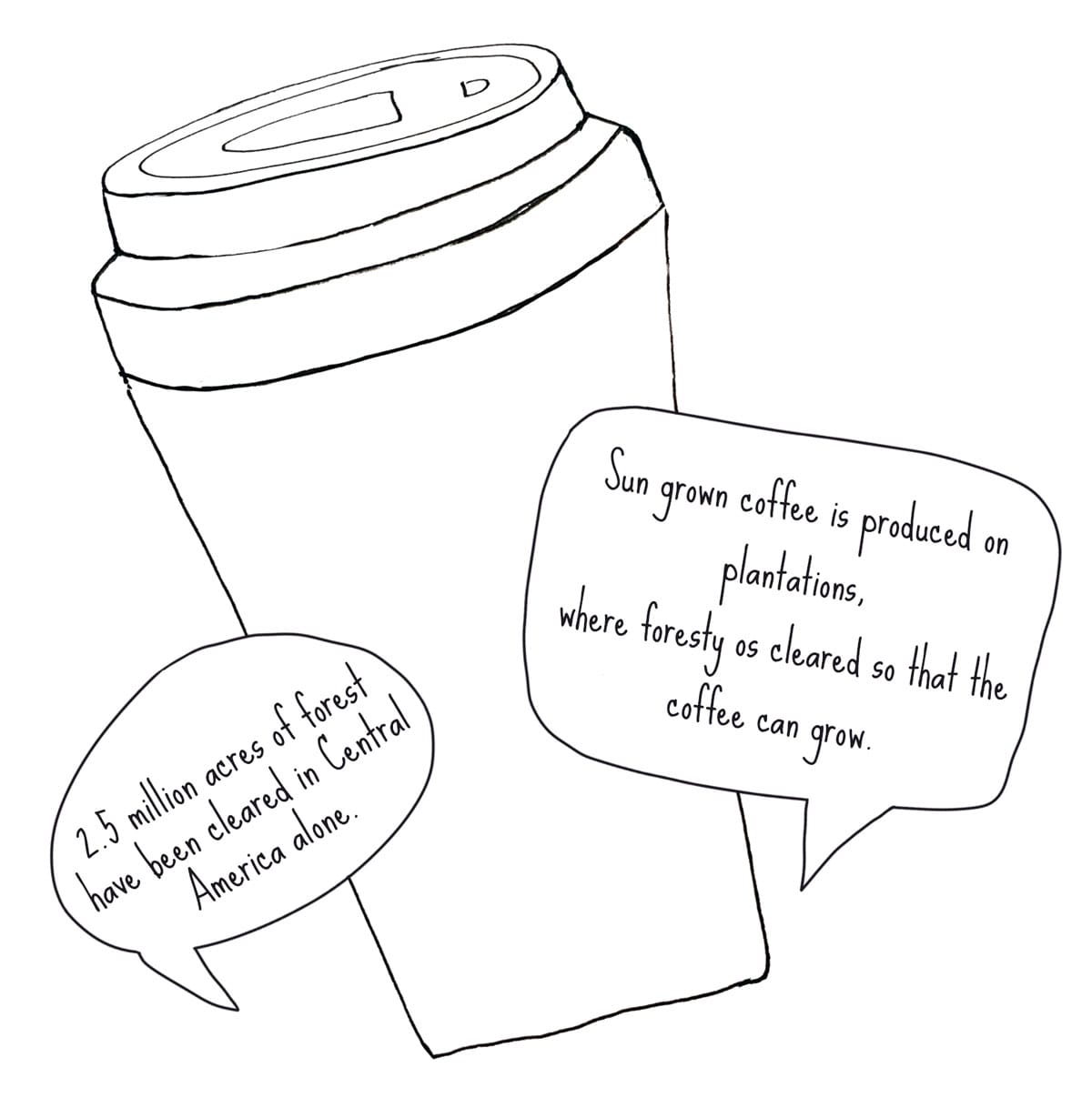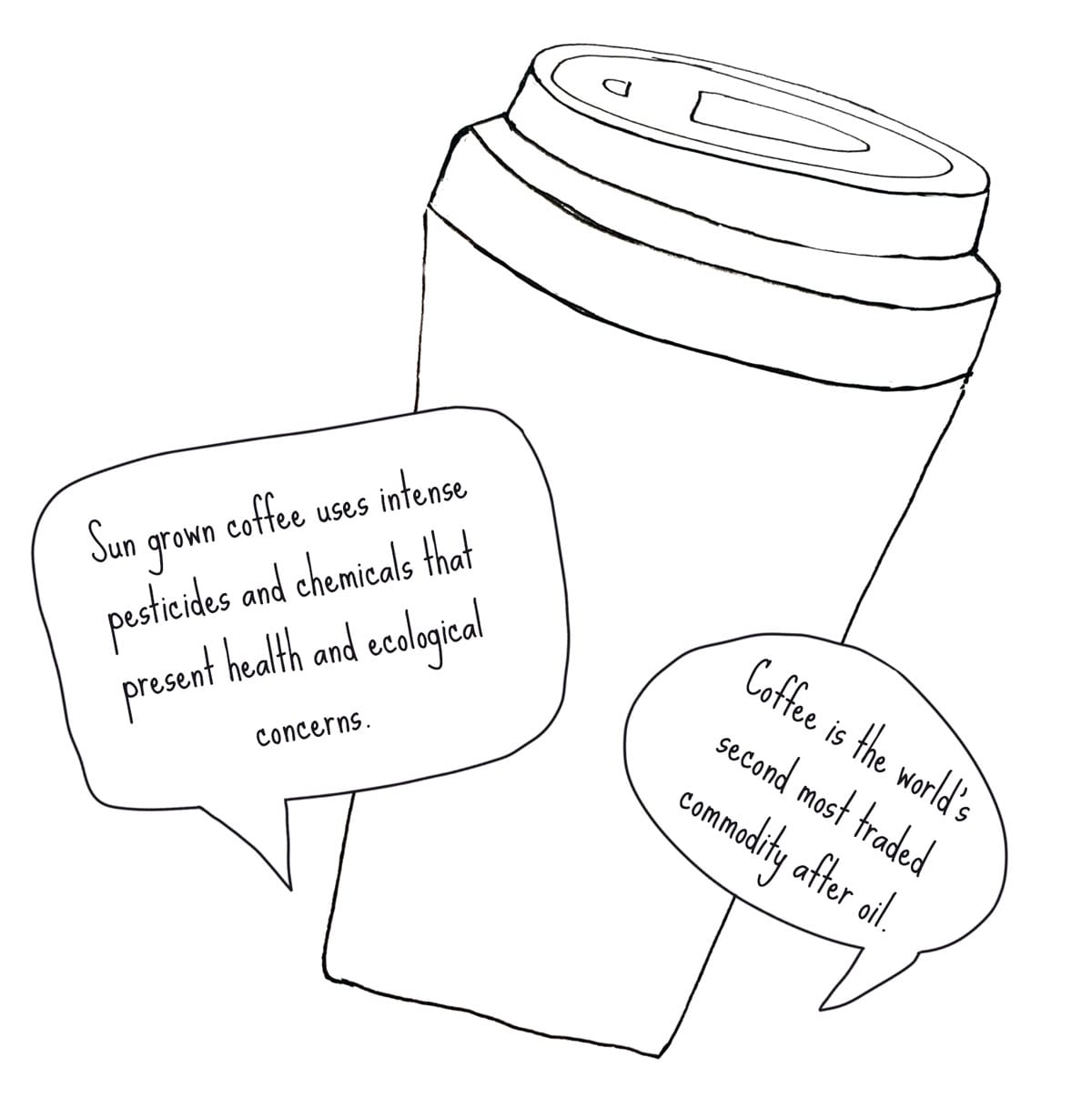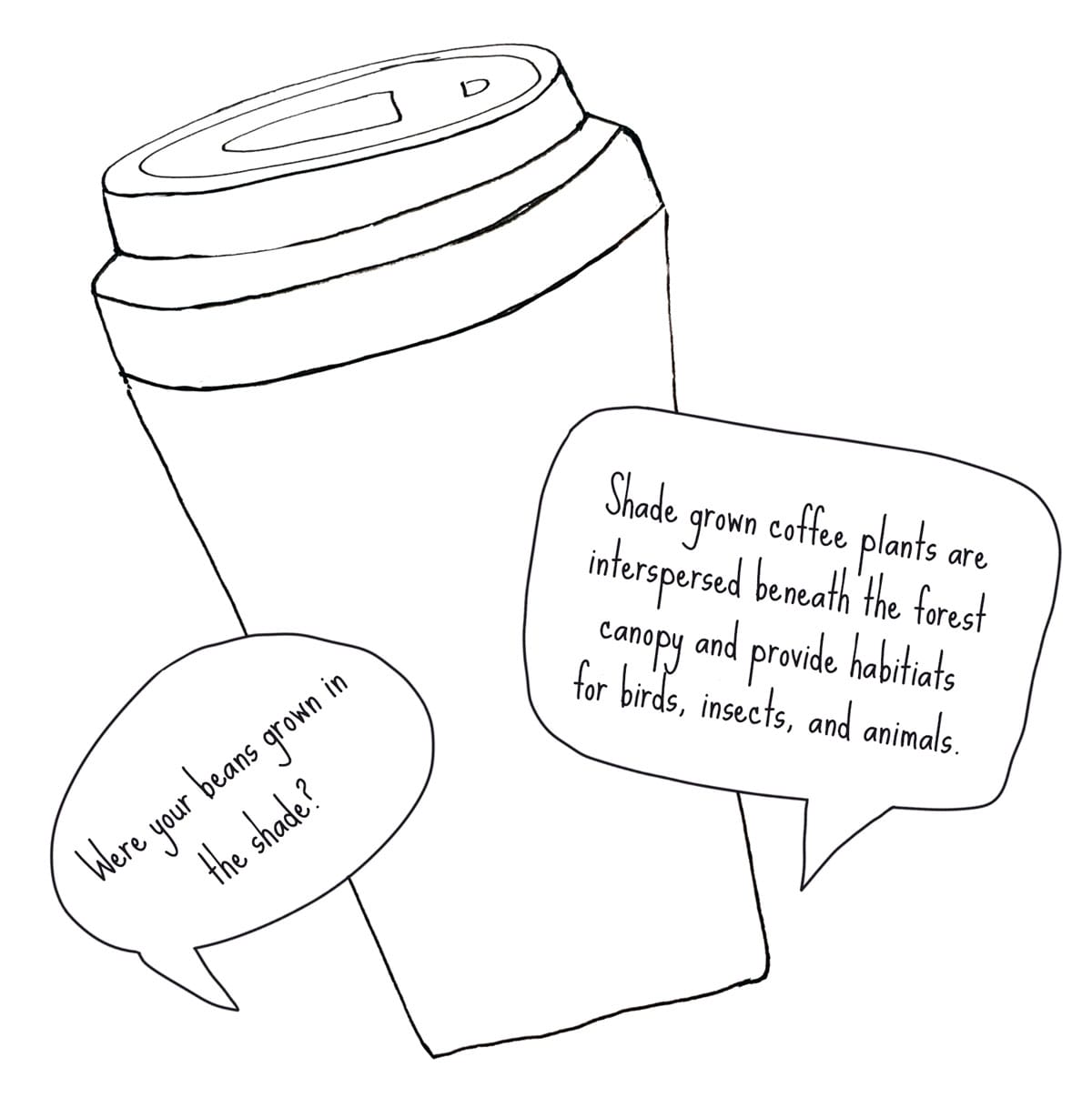Disobedient Critical Practice
1. Choose a process that is authoritative and/or political and use Post-it Notes™ to map the technical, discursive, and the social aspects.
2. On paper, make a disobedient electronic for this process that refigures the politics.

Colonialism
Fairtrade coffee (it is fair?)
Coffee houses in London in the 1800’s being the beginning of insurance firms such as Lloyd’s
The rise of coffee in the 1990’s and the new bourgeois
Rising cost of rent, rising costs of home ownership, cities getting more expensive in general, and gentrification
The “Starbucking” of pubs and historical places
Coffee as status symbol
Machines involved
Decorative milk designs
The ritual of drinking coffee
Coffee as nostalgic
The idea of a casual coffee meeting as an excuse to meet
Coffee houses as social spaces, new offices, trendy gathering places, and new forms of churches
Coffee is addictive.
People get headaches from withdrawal.
Why are we so tired? What is the incessant need to be productive?
The commodification of coffee as home espresso machines cost thousands
Starbucks inventing a language and forcing a vernacular and an invented culture – TALL, GRANDE, VENTI – instead of using the accepted, “small, medium, and large”
Where do the beans come from?
How much of a carbon footprint is involved in different types of coffee?
(for instance, I ordered Japanese Pour-Over Coffee filters from Amazon which really did ship from Japan. Surely, I could have found adequate filters in or around London)
Machines such as Nespresso create a lot of waste as the coffee pods cannot be recycled
Deforestation to allow for more coffee plants
I began thinking about the idea that consumers have power through boycott and how our expenditure effects the marketplace. Bruce Watson writes in his 2015 article, “the brand is what connects with consumers. Done strategically, putting a brand at risk can encourage a conversation.” He notes that a 1990’s boycott of Nike bourne from a protest against the use of child labor, did in fact drastically effect the way the company did business and that “today, Nike is … aware of the need to be on top of their supply chain.”
My idea for a disobedient electronic would be to place cheap speakers and chips onto the bottom of disposable coffee cups which when lifted or tilted at more than a 45-degree angle, would trigger audio related to coffee as a commodity. This would catch the consumer off-guard while informing them of the effects of coffee farming on the environment. Some audio would present alternative methods and solutions to these issues.
This reworking of the portable coffee cup would be disobedient to the large cooperate coffee companies who are largely responsible for the environmental damage brought on by sun grown coffee plantations. Hopefully the informed consumer would choose to purchase shade grown coffee, therefore forcing these corporations to elevate their supply chains much like Nike did in the 1990’s.



What’s Your Coffee Costing The Planet?
Artist Valeria Schwarz performative installation Disobedient Coffee
Delightful podcast about being appreciative - featuring coffee
Shade grown coffee